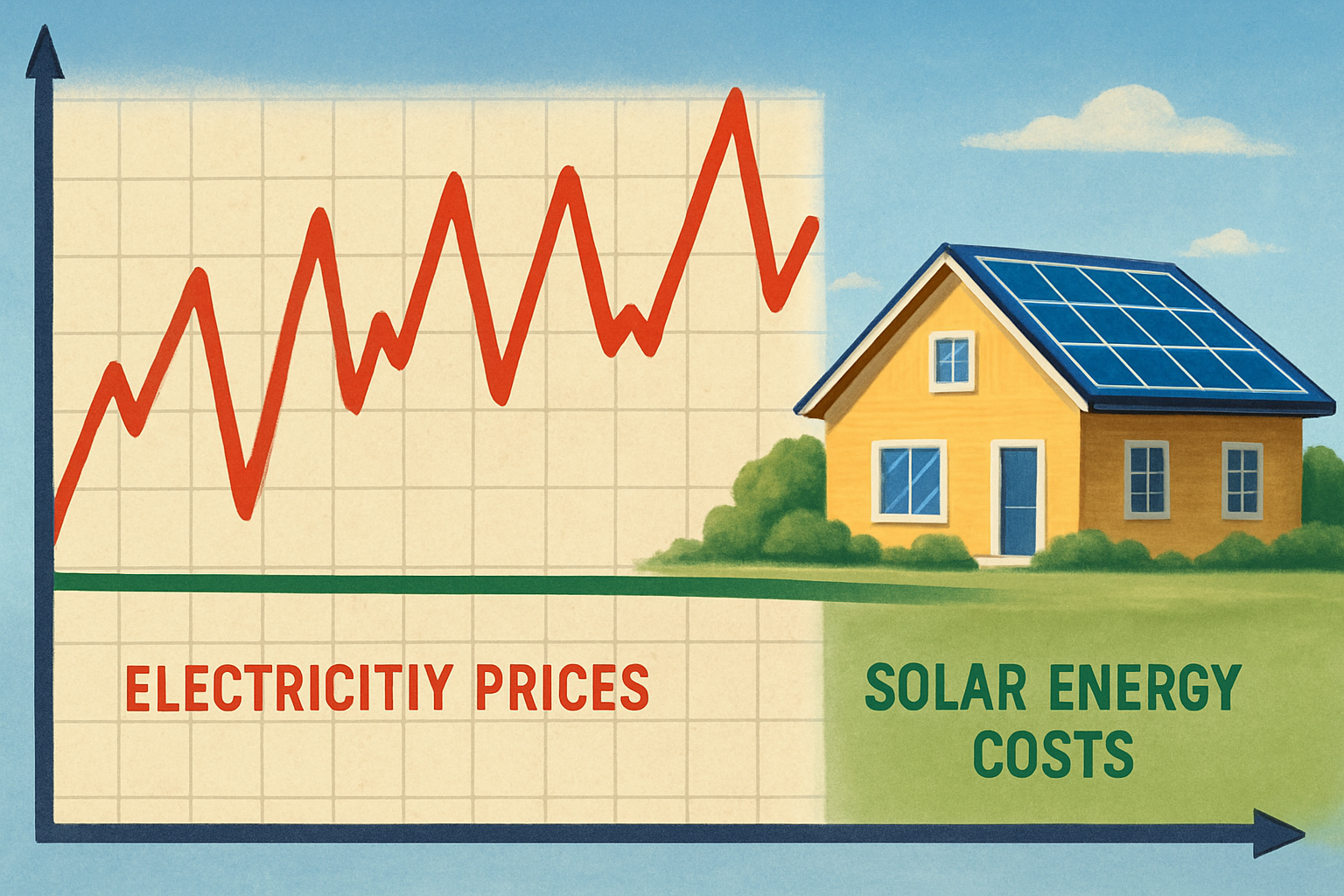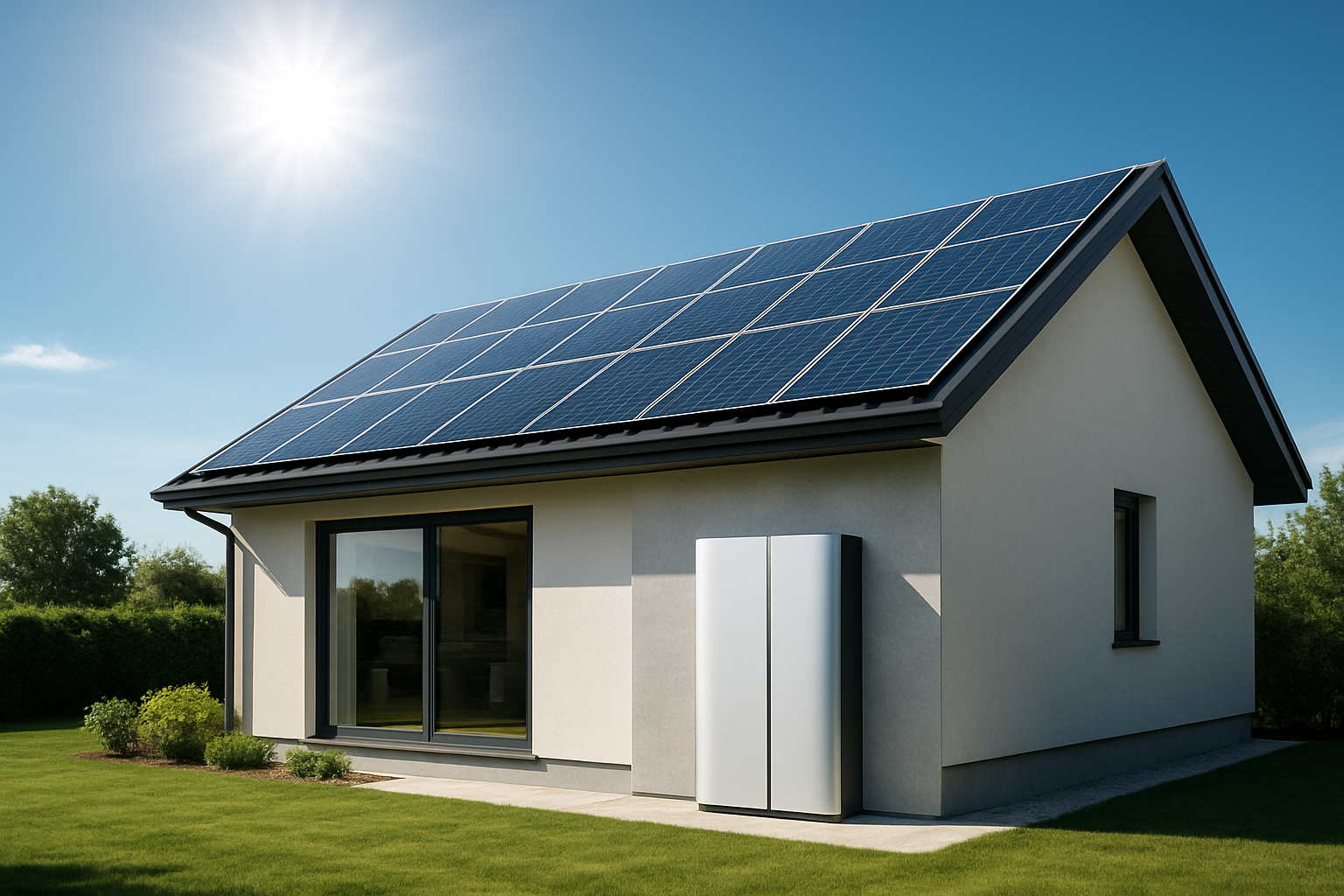The rise of electric vehicles (EVs) marks a significant shift in transportation. As more individuals adopt EVs, the demand for convenient and affordable charging solutions grows. While charging an EV at home offers unparalleled convenience, relying solely on grid electricity can lead to increased utility bills, especially with fluctuating rates and peak demand charges. This situation highlights a compelling opportunity: integrating rooftop solar power with EV charging. This approach promises substantial long-term cost reductions, enhances energy independence, and provides a robust hedge against future electricity price increases over two decades and beyond.

The Financial Advantage of Solar-Powered EV Charging
Harnessing the sun's energy for your EV offers clear financial benefits, transforming how you power your vehicle and manage household expenses.
Immediate Savings on Charging Costs
When you generate your own electricity with rooftop solar, you reduce your reliance on utility companies. This directly lowers the cost of powering your EV. Charging an EV with solar can be significantly more economical than using grid power or public charging stations. Reports indicate that charging an EV with home solar can be 51% cheaper than charging on grid power and 80% cheaper than public chargers. For many, this translates to annual savings of hundreds of dollars on home power costs for EV travel.
Furthermore, solar power helps you avoid higher rates during peak usage times. Utility companies often implement tiered pricing or peak hour surcharges, meaning higher electricity consumption can push you into more expensive rate brackets. By utilizing electricity generated directly from your solar panels, especially during daylight hours, you mitigate these peak charges, turning your home into a cost-effective charging hub. This strategy helps ensure that daily or weekly EV charging does not unexpectedly inflate your electricity bill.
Hedging Against Rising Electricity Prices
One of the most compelling benefits of solar energy is its ability to provide predictable energy costs. Unlike volatile grid electricity prices, which have historically risen by an average of 1.98% annually since 1990, the cost of solar energy becomes essentially fixed once your system is installed. This 'locks in' your fuel costs for your EV, offering long-term financial stability. Over a 25-year period, the average driver charging an EV with solar panels could save over $14,000 compared to relying on grid energy.
Long-Term Cost Reduction Through System Integration
Optimizing your solar investment for EV charging involves understanding key economic metrics and leveraging smart energy management strategies.
Understanding the Levelized Cost of Electricity (LCOE)
The Levelized Cost of Electricity (LCOE) measures the average total cost to build and operate a power-generating asset over its lifetime, divided by its total energy production. It serves as an economic assessment for comparing different electricity generation methods. The LCOE for solar photovoltaic (PV) has seen dramatic reductions, falling by over 90% since 2010. Today, unsubsidized utility-scale solar can range from $0.038 to $0.078 per kilowatt-hour (kWh), making it competitive with, or even cheaper than, traditional fossil fuel sources.
Maximizing Self-Consumption and Net Metering
A significant advantage of rooftop solar for EV owners is the ability to maximize self-consumption. This means using the electricity you generate directly to power your home and charge your EV, rather than purchasing it from the grid. Any excess electricity produced can often be sent back to the grid through net metering programs, earning you credits that offset future electricity consumption.
For instance, Denmark experienced a rapid increase in rooftop PV systems between late 2012 and early 2013, driven by net metering policies and high electricity prices. This allowed customers to deduct the electricity produced by their PV systems from their annual bills, creating a lucrative opportunity. According to the IEA, this phenomenon reduced taxes collected on electricity sales, leading to policy adjustments. Integrating smart EV chargers can further optimize this by directing excess solar power directly to your vehicle's battery, especially during peak solar production hours.
The Role of Energy Storage in EV Charging Systems
Adding energy storage to your solar-powered EV charging setup amplifies the benefits, providing greater control and resilience.
Enhancing Self-Sufficiency with Batteries
Battery Energy Storage Systems (ESS) are pivotal in maximizing the value of your rooftop solar installation for EV charging. These systems store surplus energy generated by your solar panels during peak sunlight hours. This stored energy can then be used to charge your EV during periods of low solar production, such as at night or on cloudy days, or when grid electricity prices are higher. This capability significantly reduces your dependence on the main grid for EV charging and household needs. Our high-performance, safe, and reliable Lithium Iron Phosphate (LiFePO4) batteries are ideal for such applications, ensuring consistent power delivery.
Providing Resilience and Peak Shaving
Beyond daily charging optimization, a solar-plus-battery system provides crucial resilience. In the event of a power outage, the stored energy in your ESS can power your home and charge your EV, ensuring continuous functionality. This feature is particularly valuable for off-grid solar solutions, offering complete energy independence for homes, farms, or remote cabins. Furthermore, ESS enables 'peak shaving,' a strategy where stored energy is used to lower your facility's monthly peak energy usage, thereby avoiding higher utility rates often charged for peak demand. Our integrated home energy storage systems, combining lithium batteries, hybrid inverters, and solar panels, are designed to deliver reliable and scalable energy solutions.
Policy Support and Future Outlook
Government initiatives and technological advancements continue to shape a favorable landscape for solar-powered EV charging.
Initiatives for Streamlined Solar-EV Deployment
Governments and regulatory bodies have recognized the importance of integrating solar and EV technologies. Programs have been launched to reduce administrative hurdles and streamline the deployment process for solar energy. For example, the U.S. Department of Energy's EERE launched the Rooftop Solar Challenge in 2011, a program that helped cut permitting time by 40% and reduce fees by over 10% for solar installations. This initiative aimed to make solar energy more accessible and affordable.
Additionally, various financial incentives, such as tax credits and rebates, are often available to homeowners and businesses installing solar panels and EV charging infrastructure. These incentives significantly reduce the initial investment, improving the overall return on investment for solar-powered EV charging systems.
Accelerating the Electrification Transition
The synergy between rooftop PV and EV adoption is clear: reducing the cost of charging electric vehicles increases their value proposition, potentially accelerating the broader electrification of the transportation sector. Conversely, increased EV adoption drives demand for on-site power, further boosting rooftop PV installations. The integration of solar, energy storage, and EV charging is transforming properties into clean energy hubs. This holistic approach not only benefits individual consumers through significant cost savings and energy independence but also contributes to a more sustainable and resilient energy system overall. Our solar inverters, crucial components in converting direct current (DC) from solar panels into alternating current (AC) for home use and EV charging, facilitate this transition.
A Path to Energy Independence
Powering your electric vehicle with rooftop solar represents a forward-thinking investment. It offers a tangible path to substantial long-term savings on electricity bills, protecting you from unpredictable energy market fluctuations. Beyond the financial advantages, you gain enhanced energy independence and contribute to a cleaner energy future. By combining solar generation with efficient energy storage solutions, you achieve a reliable, scalable, and environmentally conscious way to meet your transportation and household energy needs. This integrated approach empowers you to take control of your energy consumption for decades to come.





Leave a comment
All comments are moderated before being published.
This site is protected by hCaptcha and the hCaptcha Privacy Policy and Terms of Service apply.